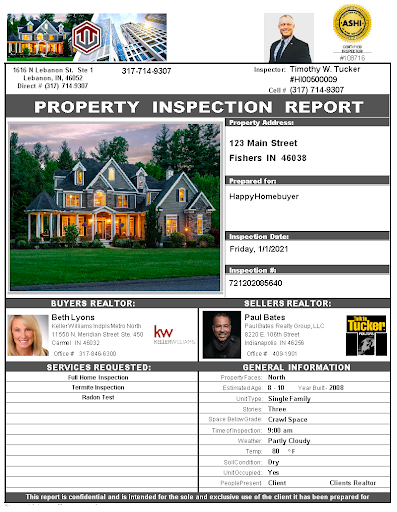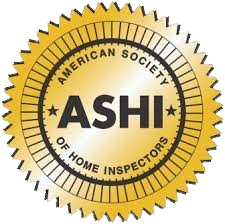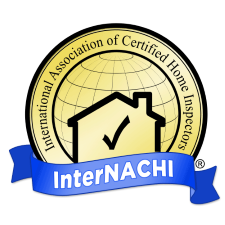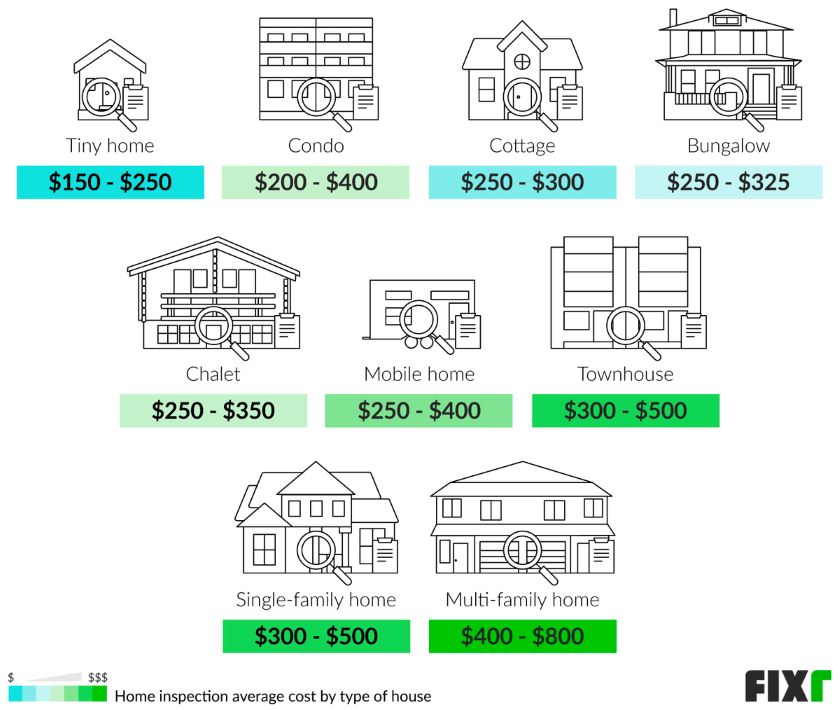To ensure a property is a wise investment and free from costly surprises, you should hire a professional home inspector to complete a thorough evaluation. High-quality inspectors are detail-oriented and communicative, maintain the required licenses, and have experience inspecting buildings of your property type. Below, I go through the process of how to choose a home inspector, what to look for, how to find a reputable candidate, plus the costs associated with home inspection and questions to ask before you hire.
What Is the Role of a Home Inspector?
A home inspector meticulously examines a residence’s physical structure and systems and then offers a comprehensive report highlighting potential concerns. The inspection covers key areas, such as the condition of the home’s roof, walls, windows, doors, foundation, plumbing, electrical systems, heating and cooling systems, and insulation.

Home inspection example report (Source: Timothy W. Tucker & Associates, LLC)
This examination is about identifying current problems and uncovering potential issues that could arise in the future. The best home inspections will include an extremely detailed report that provides a critical overview, allowing buyers to make informed purchasing decisions based on the property’s actual condition.
What to Look for When Choosing a Home Inspector
When selecting a good home inspector, you want to make sure you’re choosing a professional who not only possesses the necessary qualifications to be a home inspector but also has experience. They should embody the key qualities essential for conducting a thorough and informative inspection, like attention to detail and good communication. However, given the homebuying process sometimes moves very quickly, you also want to ensure that the home inspector can finish their report in a timely fashion.
Here are some of the most important documents and elements to look for:
Credentials & Certifications
A professional home inspector should be able to share their credentials and certifications with you. Buyers can verify these credentials to ensure compliance with national and local regulations. Investigating their professional background provides insight into their experience and specialization, particularly concerning the type of home you are considering.
 |
 |
|
ASHI and InterNACHI inspector organizations |
|
Additionally, membership in reputable industry organizations, such as the American Society of Home Inspectors (ASHI) or the International Association of Certified Home Inspectors (InterNACHI), can further attest to their commitment to upholding high standards of practice.
Cost of Inspection
While the cost is an important consideration when hiring a home inspector, it should not be the deciding factor. Opting for the cheapest option might result in a less thorough inspection, potentially missing significant defects that could lead to expensive repairs.
The price of a home inspection varies based on the size and age of the home, as well as the inspector’s experience and the comprehensiveness of their report. It’s essential to view the inspection fee in the context of the overall investment in your home. Investing in a quality inspection can save you from unforeseen expenses, making it a wise aspect of homebuying. Always ensure you understand what is included in the inspection fee to assess its value accurately.
How Much Should Home Inspections Cost?
A buyer can expect to pay between $200 and $500 for a thorough home inspection, but additional services, such as pest, radon, or mold inspection, may increase the cost. The location of the property also plays a huge factor in the price. States like Washington and New Jersey may have higher average inspection prices than Nevada or Wisconsin based on the licensing requirements for inspectors.

Home inspection costs (Source: Fixr)
When considering cost, also weigh the inspector’s qualifications, experience, and the thoroughness of the inspection they offer. According to Fixr.com, the home inspection cost by the size of the house is broken down by square footage:
House Size (by Square Footage) | Average Cost |
|---|---|
800 | $145-$200 |
1,000 | $180-$250 |
1,200 | $215-$300 |
1,400 | $250-$350 |
1,600 | $290-$400 |
1,800 | $325-$450 |
2,000 | $360-$500 |
2,200 | $395-$550 |
Inspection Logistics
The logistics of the home inspection process are key to its success. The inspection should align with your homebuying timeline by offering flexibility to fit within crucial decision-making windows. A thorough inspection typically takes two to four hours, which can vary based on the property’s size, age, and condition.
An inspector who rushes through this process is likely not providing the detailed scrutiny required to identify potential issues. Scheduling should also allow for you to be present during the inspection. This provides an opportunity to ask questions and gain firsthand insights into the property’s condition.
How Long Should a Home Inspection Take?
A comprehensive home inspection should not be rushed. The duration of a home inspection generally varies depending on the size, age, and condition of the property, as well as the scope of the inspection. On average, a thorough inspection should take two to four hours for a typical single-family home. However, larger homes, older investment properties, or those with additional features, such as pools or outbuildings, may require more time, potentially extending inspection time by up to five hours or more.
Factors influencing the length of an inspection include:
- Size of home: Larger homes have more space and potentially more systems to inspect, naturally extending the duration of the inspection.
- Age of the property: Older homes may have outdated systems, potential safety issues, or wear and tear that require a closer look.
- Condition of home: Homes in poor condition with visible defects or maintenance issues may necessitate a more detailed inspection to assess the extent of the problems thoroughly.
- Additional inspections: Specialized inspections for aspects such as pests, radon, mold, or asbestos are not typically included in a standard home inspection and require additional time.
How to Find a Qualified Home Inspector
After understanding what to look for in a home inspector, buyers can begin their quest to find a reputable inspector. This process requires diligence, but there are easily accessible avenues to help you find a home inspector.
For those anticipating future real estate purchases, establishing relationships with a few trusted inspectors can prove invaluable. Building a network of reliable professionals not only streamlines the process for subsequent acquisitions but also ensures consistency in the quality of inspections.
Various resources are available to buyers for locating a new home inspector:
- Real estate agents: Agents often have a list of inspectors they have worked with in the past and can recommend based on professionalism and thoroughness. However, to avoid any conflict of interest, ensure the recommended inspector is known for impartiality.
- Mortgage lenders: Some lenders may also have experience with home inspectors whose reports they trust and can provide recommendations.
- American Society of Home Inspectors (ASHI): ASHI’s “Find an Inspector” tool allows you to search for certified inspectors in your area. Members are required to adhere to the ASHI Standards of Practice and Code of Ethics.
- InterNACHI: InterNACHI offers a directory of certified inspectors who must meet comprehensive education and training requirements.
- National Academy of Building Inspection Engineers (NABIE): If you prefer an engineer’s expertise, NABIE certifies engineers and architects in building inspection.
- Yelp and Google reviews: Online reviews can provide insights into previous clients’ experiences, offering a glimpse into the inspector’s thoroughness, professionalism, and client interaction.
- Better Business Bureau (BBB): The BBB website can be a resource for finding accredited home inspectors and seeing any complaints or accolades associated with their services.
- Local business directories: Local online or printed business directories can list home inspectors in your area, providing a starting point for further research.
- Real estate websites and forums: Websites focusing on real estate and homebuying may have forums or articles recommending specific inspectors or firms known for quality service.
10 Questions to Ask Potential Home Inspectors Before Hiring
When meeting or speaking with potential home inspectors, asking the right questions is key to ensuring you receive a thorough and effective inspection. Knowing how to choose a home inspector will make it easier when approaching home inspectors with critical questions that identify their expertise. By preparing a concise list of questions, you can effectively assess each inspector’s qualifications and select the professional best suited to your needs.
Example questions below to gauge an inspector’s expertise:
- What does your inspection cover, and what are the limitations?
- How long have you been a home inspector, and how many inspections have you done?
- What kind of tools and technology do you use during inspections?
- How long have you been practicing as a home inspector, and how many inspections have you completed?
- How much do you charge for an inspection?
- Do you have specialization in certain types of properties?
- Can you provide a sample of your inspection report?
- Are you a member of any professional home inspection organizations?
- Can you provide references from past clients?
- How soon after the inspection will I receive my reports?
Bottom Line
Selecting the right home inspector is a critical step in the homebuying process. An effective inspector identifies current problems while offering insights that can impact your decision-making. The process of how to choose a home inspector involves understanding the inspector’s role, assessing their credentials, and recognizing essential qualities that contribute to a thorough and impartial inspection. With the right approach, home inspection can be a valuable tool in making a confident and informed investment.